Case study
Experience Strategy for a New Oncology Test
Challenge
Cancer is a difficult disease to treat, since every person's cancer is unique to them. This leaves oncologists guessing, often working with imperfect information during the patient treatment journey. Foundation Medicine aimed to develop a tumor monitoring test based on a simple blood draw to address this issue, as an alternative to invasive biopsies. However, they faced the difficulty of being a late-mover in the market and needed to navigate unfamiliar data interpretation by oncologists. I led a team focused on the oncologists’ and patients’ experience of this new test.
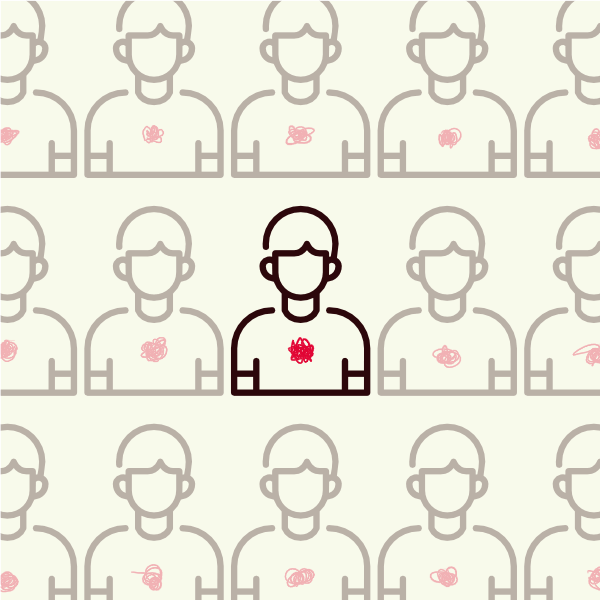
One aspect that makes cancer difficult to treat is the individuality of the disease. Even with the same diagnosis, patients may have very different cancers.
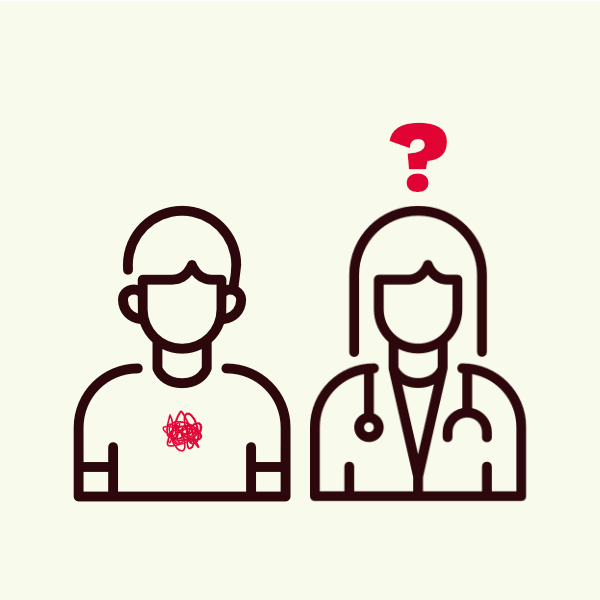
The lack of up-to-the-minute information can force an oncologist to make difficult decisions based on generic guidelines around standard of care
Approach
Under my leadership, the team conducted a mini 3-day Design Sprint with cross-functional stakeholders to quickly gather insights and align goals. Next we delved into real-world patient scenarios, engaged with oncologists and care team members, synthesized findings, and created prototype experiences. We were able to rapidly iterate based on participant feedback, deepening our understanding and sharing findings with stakeholders.
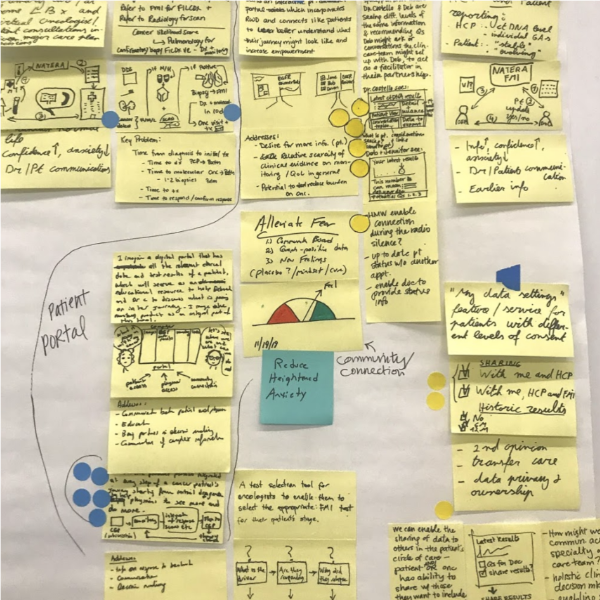
Big idea vignettes
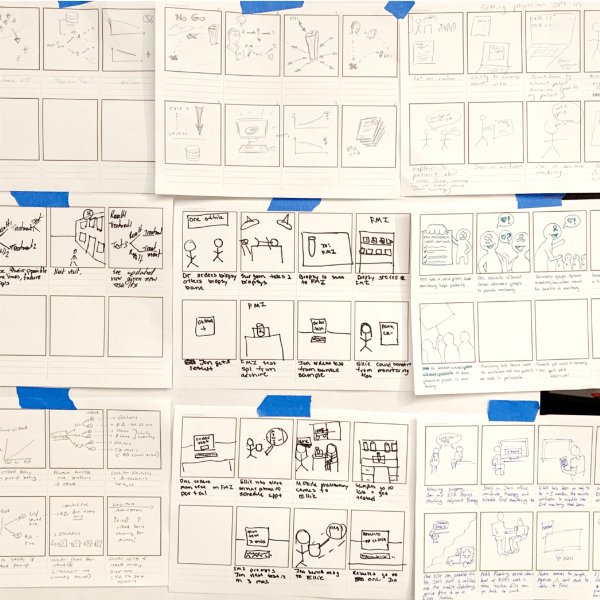
Concept storyboards
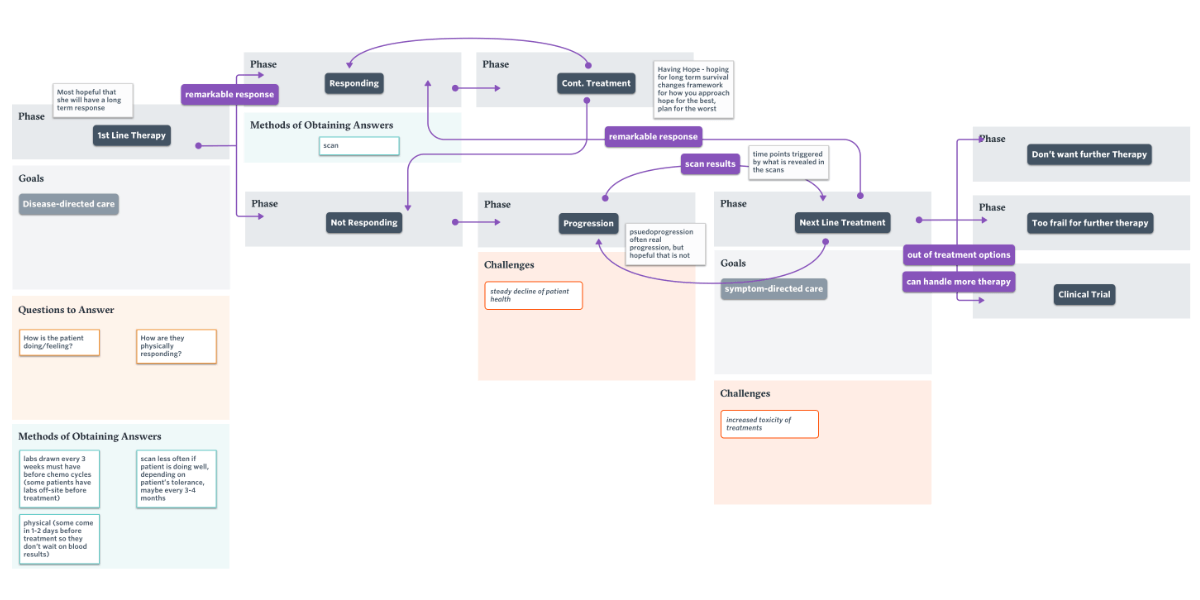
One specific oncologist's process in treating a patient, including their challenges, questions, and resources
Outcomes
Together with the team, I developed Guiding Principles for the patient and oncologist experience. We mapped out the patient journey through collaborative sessions with care team members and identified key moments of impact for Foundation Medicine to provide value. Additionally, we created mental models of oncologists' decision-making process in order to provide better data. Finally, the prototypes generated valuable insights and informed the business's direction.
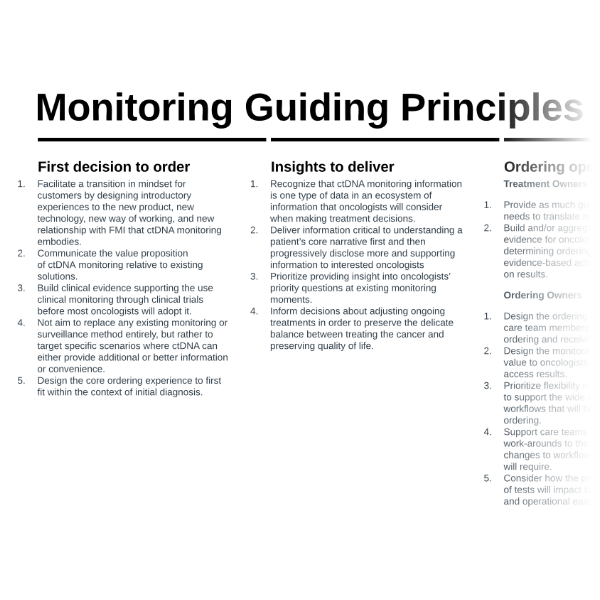
A slice of the guiding principles that we developed, based on phases of the treatment journey
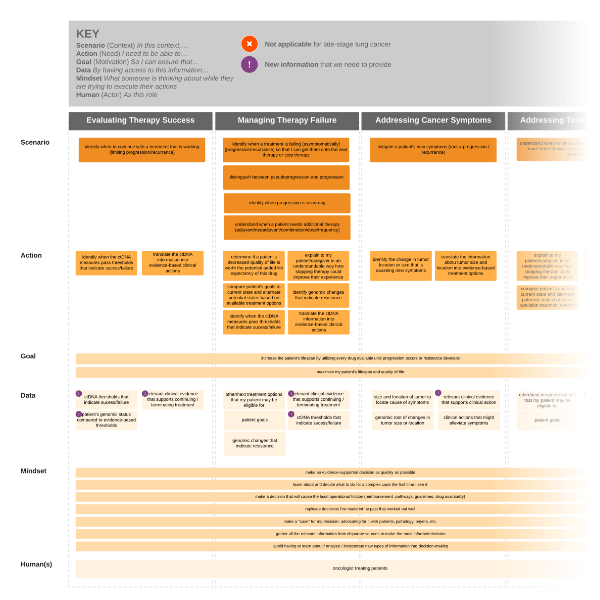
Core scenarios that oncologists would confront during patient treatment
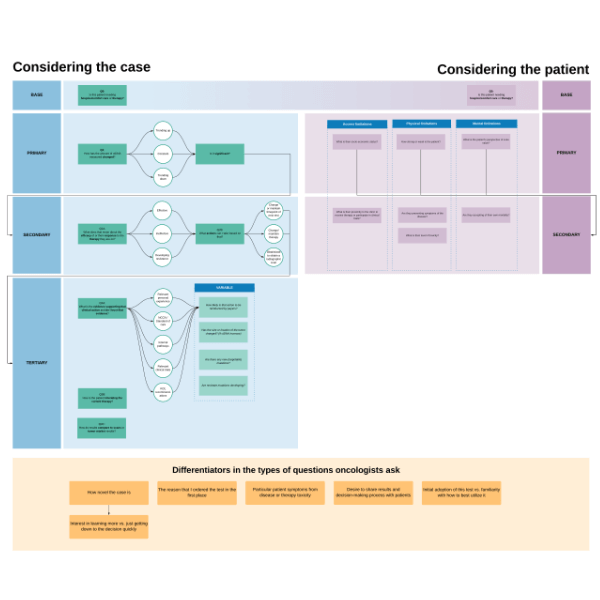
Oncologists made critical decisions based on specifics of the individual patient's case as measured against a patient's resources or access.
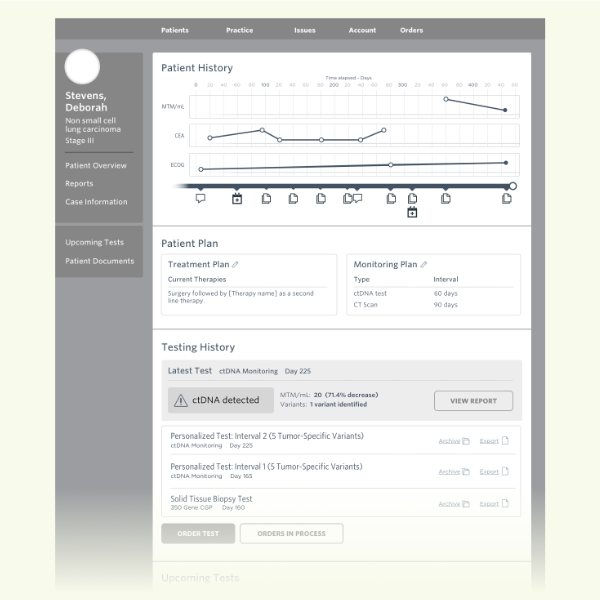
I created a sacrificial concept of an interactive experience that oncologists could use to navigate patient treatment
Impact
In a first for my career, the project influenced changes in clinical trial protocols. We were also able to work with delivery teams to guide a successful launch experience, and addressed critical onboarding issues. The research had a tangible impact on decision-making across the business, resulting in improved outcomes for patients and higher adoption rates.
All Case Studies